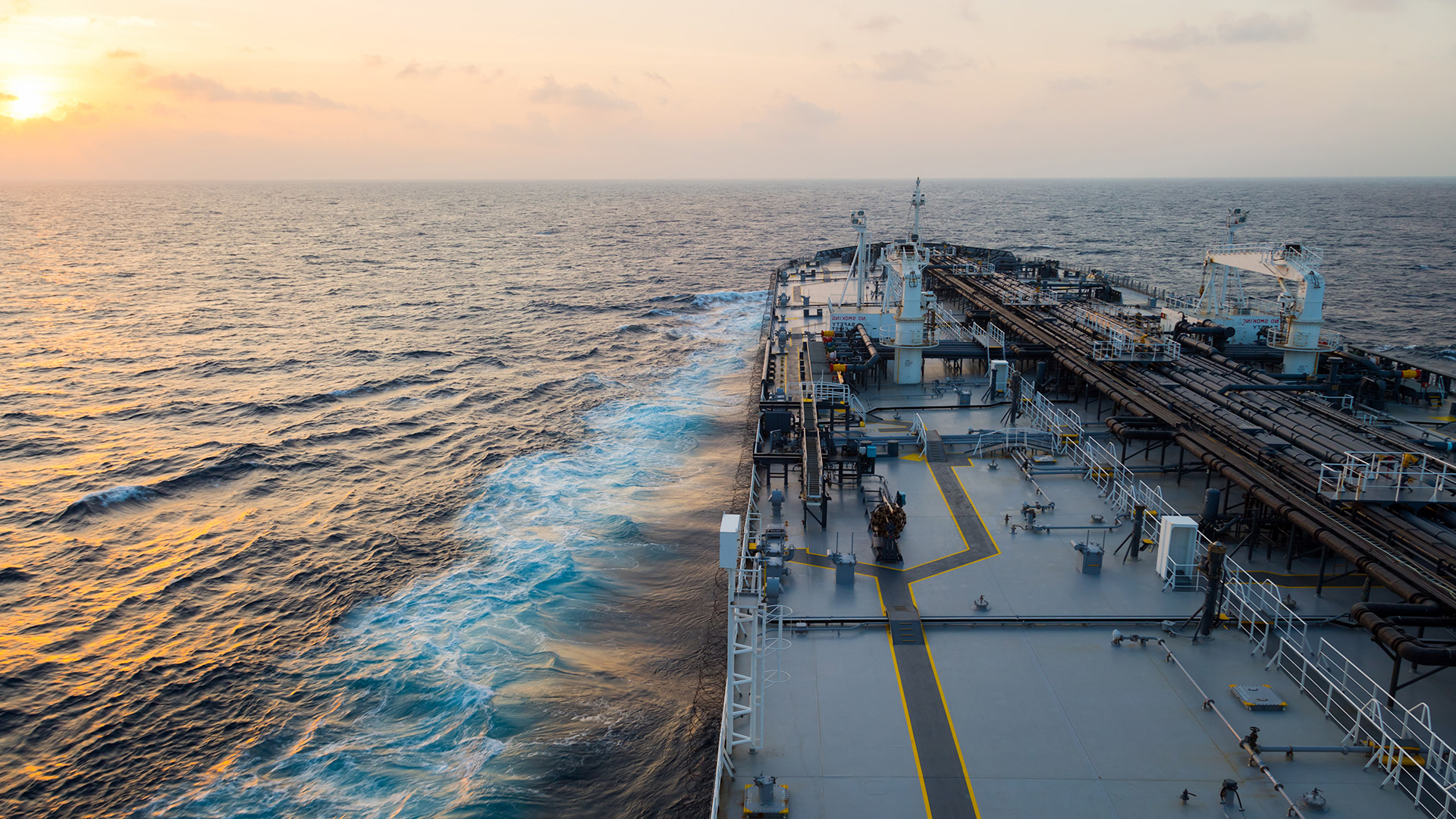Practical considerations
Risk management
Where shipowners, charterers or operators believe there is a risk of an attack, they should consider preventative action to mitigate such risk. It is commonplace for war risk clauses and policies to mandate compliance with “recommended best practice”, “best industry practice” or words to that effect.
The Best Management Practices to Deter Piracy and Enhance Maritime Security in the Red Sea, Gulf of Aden, Indian Ocean and Arabian Sea (BMP5) provides guidance for vessels to plan their voyage and to detect, avoid and deter attacks. BMP5 states that vessels planning a voyage via the Red Sea should conduct a thorough ship and voyage specific risk assessment which considers, but is not limited to:
- requirements of the Flag State, company, charterers and insurers;
- cooperation with the military;
- the ship’s and company’s procedures (drills, watch rosters, chain of command, decision making processes, etc.);
- the embarkation of Privately Contracted Armed Security Personnel; and
- the ship’s characteristics, vulnerabilities, and inherent capabilities, including citadel and/or safe muster points to withstand the threat (freeboard, speed, general arrangement, etc.).
Evidence collated by the International Chamber of Shipping has shown that the application of the BMP5 recommendations has improved the safety of seafarer; however BMP5 was never intended to provide effective defence against a party armed with missiles and drones. Arguably, the precautions that can be taken onboard will help against possible hijacking (although probably only against boats rather than from the air) and liaison with the coalition forces and perhaps convoy will assist but this situation is more akin to a war against state parties, rather than mere terrorism. But clearly a large number of vessels are transiting the Red Sea despite the risk and whilst the Houthi seem capable of causing a serious inconvenience, it may be that they will not have the fire power to make the risk unacceptable to most shipowners, particularly if there are no links to, or calls in Israel.
Whilst it may be reasonable for shipowners to request that vessels be rerouted to avoid the Red Sea whilst the situation is evolving and attacks are escalating, whether or not this is commercially feasible depends on the terms of the charterparty, bill of lading or other contractual documents.
Additional war risk premiums
The Joint War Committee (JWC), which comprises Lloyd’s Market Association syndicate members, has widened the high-risk zone in the Red Sea to 18 degrees north in response to the Houthi attacks. The JWC alert is aimed at insurers and is in response to the considered increased likelihood of attacks and to reflect the Houthi missile range.
As a result, war risk rates are continuing to increase and insured parties should consult their war risk underwriter(s) before transiting through the defined additional premium area. Whilst war risk rates stood at a nominal 0.05 percent prior to the Israel-Palestine conflict in October 2023, by the end of December 2023 the rates had risen to 0.1 percent - 0.2 percent with increases of up to 250 percent for Israeli shipowners.
It is likely that these increased war risk premiums will “trickle-down” to owners and charterers depending on the contractual agreement (for example, if BIMCO CONWARTIME 2013 clauses have been incorporated).
Legal considerations
There has been limited guidance on rerouting from the Red Sea for shipowners, charterers or operators, so the decision to reroute must be considered on a case-by-case basis depending on the terms of the underlying contract.
Where the vessel is under charter, can the shipowner reroute the vessel to avoid transiting through the Red Sea?
As with any variation to contracts, the shipowner or operator would first need to understand their respective rights and obligations under the charterparty. There is no single answer to this question unfortunately – each case will require careful reading of the terms, an understanding of the situation leading up to execution of the agreement and the characteristics of the vessel itself and its itinerary.
Consequently, the clauses in any charterparty must be read in context. If a ship is fixed with both shipowners and charterers understanding the risks of passing through the Red Sea, these clauses have a different flavour. If they have agreed that the vessel will “always” pass through Suez, this is likely to prevail despite the risk situation that the route exposes the ship to – the shipowners will be considered to have accepted that risk.
Standard charterparties often incorporate BIMCO’s War Risks Clause for Time Chartering 2013 (CONWARTIME 2013) and/or BIMCO’s War Risks Clause for Voyage Chartering 2013 (VOYWAR 2013) which include specific provisions in relation to war risks.
Both CONWARTIME 2013 and VOYWAR 2013 define “War Risks” as:
“war, act of war, civil war or hostilities; revolution; rebellion; civil commotion; warlike operations… acts of piracy and/or violent robbery and/or capture/seizure (hereinafter “Piracy”); acts of terrorists; acts of hostility or malicious damage; blockades (whether imposed against all vessels or imposed selectively against vessels of certain flags or ownership…), by any person, body, terrorist or political group, or the government of any state or territory whether recognised or not, which, in the reasonable judgement of the Master and/or the Owners, may be dangerous or may become dangerous to the Vessel, cargo, crew or other persons on board the Vessel.”
Paragraph (b) of the CONWARTIME 2013 provides that:
“The Vessel shall not be obliged to proceed or required to continue to or through, any port, place, area…. (hereinafter “Area”), where it appears that the Vessel, cargo, crew or other persons on board the Vessel, in the reasonable judgement of the Master and/or the Owners, may be exposed to War Risks whether such risk existed at the time of entering into this Charter Party or occurred thereafter. Should the Vessel be within any such place… which only becomes dangerous, or may become dangerous, after entry into it, the Vessel shall be at liberty to leave it.”
Similarly, paragraph (d) of VOYWAR 2013 provides:
“If at any stage of the voyage… it appears that, in the reasonable judgement of the Master and/or the Owners, the Vessel, cargo, crew or other persons on board the Vessel may be exposed to War Risks on any part of the route… which is normally and customarily used in a voyage of the nature contracted for, and there is another longer route to the discharging port, the Owners shall give notice to the Charterers that this route will be taken…”
The question of whether the vessel “may be” exposed to a War Risk must be determined on a case-by-case basis with consideration of the relevant facts and risks. English law applies a relatively broad test when considering the rights of shipowners / masters to exercise their rights under CONWARTIME 2013 or VOYWAR 2013. English courts have held that the threshold of “may be” will be satisfied if, in the opinion of the shipowner or master, there is, based on evidence rather than speculation, a real likelihood of the vessel being exposed to a War Risk. The test for this threshold is fact-specific, objective rather than subjective and any decision to reroute a vessel must be made in good faith (see The “Triton Lark” No.1 [2012[ 1 Lloyd’s Rep 151 Teare J and The “Triton Lark” No.2 [2012] 1 Lloyd’s Rep 457). Considering the escalating attacks by Houthi rebels, it may therefore be the case that owners / masters would be entitled to exercise their rights under CONWARTIME 2013 or VOYWAR 2013 to reroute vessels away from the Red Sea.
Charterers are required to indemnify shipowners for claims made against the shipowner which arise out of the vessel proceeding in accordance with the provisions of Sub-clauses (b) to (f) of VOYWAR 2013 and the provisions of Sub-clause (b) to (h) of CONWARTIME 2013, so it is important to ensure that any notices are well documented and contemporaneous evidence supporting the decision to reroute is collected in case a dispute arises (which may be the case of if the sum of indemnity demanded is particularly high). It is also important that the Master takes the decision rather than a committee solely ashore – all the clauses require the Master to make the assessment – this cannot be delegated to management solely ashore and the Master must be involved with, and take, the final decision.
If there are not any specific war risk provisions in the charterparty, the parties’ obligations and liabilities will be established in accordance with any express or implied terms. Shipowners may be able to reroute the vessel by relying on:
- an overriding contractual duty to ensure the safety and of crew and the vessel which would provide grounds to reroute a vessel;
- a safe port warranty which provides that if the vessel is ordered to a port that is unsafe or via an unsafe route, the charterer will be liable if any loss or damage ensues; or
- a force-majeure provision setting out when the shipowner may be excused from contractual obligations on the basis of events hindering or delaying performance on the grounds that it is beyond the control of the shipowner or charterer.
Where the vessel is under charter, can the shipowner or operator nominate an alternative port of discharge to avoid transiting through the Red Sea?
If the shipowner wishes to nominate an alternative port of discharge, it should refer to the bill of lading and charterparty. In the event that the bill of lading or charterparty does not incorporate CONWARTIME 2013 or VOYWAR 2013, the shipowner may be in breach of the bill of lading if the cargo is discharged at an alternative port.
Paragraph (c) of VOYWAR 2013 provides that if, in the reasonable judgement of the master and/or shipowners of a vessel, the crew, cargo or vessel may be exposed to a War Risk (as defined above), the shipowners may by notice request the charterers to nominate a safe port for the discharge of the cargo, and if within 48 hours of the receipt of such notice, the charterers fail to nominate a safe port, the shipowners may discharge the cargo at any safe port of their choice (including the port of loading) in complete fulfilment of the Contract of Carriage. In these circumstances, the shipowner will be entitled to recover the extra expense of the discharge and, if the discharge takes place at a port other than the loading port, to receive the full freight as if the cargo has been carried to the discharging port. If the additional distance exceeds 100 miles, the shipowner will be entitled to additional freight proportional to the additional distance.
Paragraph (b) of CONWARTIME 2013 incorporates similar rights (as set out above).
What are carriers’ rights if rerouting causes damage or delay to cargo?
Most carrier contracts require the carrier to transport cargo from the port of loading or delivery to the port of discharge via the agreed route and without any unusual delay or deviation. However, given the ongoing risk of Houthi rebel attacks, it may be necessary to reroute the vessel which ultimately causes damage to the cargo resulting in loss for the charterer.
Article IV of the Hague Visby Rules, which apply to contracts of carriage covered by a bill of lading or a similar document of title relating to the carriage of goods by sea, provides that:
“Any deviation in saving or attempting to save life or property at sea or any reasonable deviation shall not be deemed to be an infringement or breach of this Convention or of the contract of carriage, and the carrier shall not be liable for any loss or damage resulting therefrom”.
Any such deviation would need to be governed by the need ensure safe passage of the crew and cargo rather than operational or commercial factors. A deviation that is necessary to ensure the safety of the crew and vessel is unlikely to be considered a breach of the contract of carriage under the Hague Visby Rules. However, this would need to be assessed on a case-by-case basis with consideration of the specific facts of each deviation.
What are merchants’ rights if rerouting causes damage or delay to cargo?
It is industry standard for the terms of carriage between a merchant and carrier to include clear provisions that protect the carriers’ position in the event of any damage or delay to cargo because of rerouting including that:
- the carrier will not guarantee that any goods will arrive or be available at any port of discharge or place of delivery by a particular time or date;
- the carrier will not be liable for any direct, indirect or consequential loss or damage caused by any delay;
- the carrier is entitled to take any route to the nominated port of discharge or change the nominated port of discharge with notice to the merchant; and
- the carrier is entitled to proceed via an alternative route, nominate an alternative port of discharge, suspend the carriage of the cargo or abandon the cargo at a place deemed to be safe and convenient by the carrier in the event that the carriage of the cargo is likely to be affected by any risk, danger, delay or disadvantage.
Absent such express provisions, the carrier contract will most likely have a range of other clauses to protect the carrier in the event of a delay to discharge including force majeure clauses as outlined above.
Therefore, it is highly unlikely that a merchant would have a claim against the carrier for any delay in the delivery of the cargo, particularly in circumstances where the delay is a result of the decision to reroute to minimise risk to the vessel or crew.
Merchants should consider the terms of their respective insurance policies to recover any loss arising from damage or delay to cargo, particularly merchants transporting perishable items.
Further, merchants managing ‘just-in-time’ supply chains or performing contracts that are dependent on the delivery of cargo by a particular date should carefully review all contracts linked to the delivery of the cargo to understand their rights and obligations if any such delay results in a breach of another contract.






